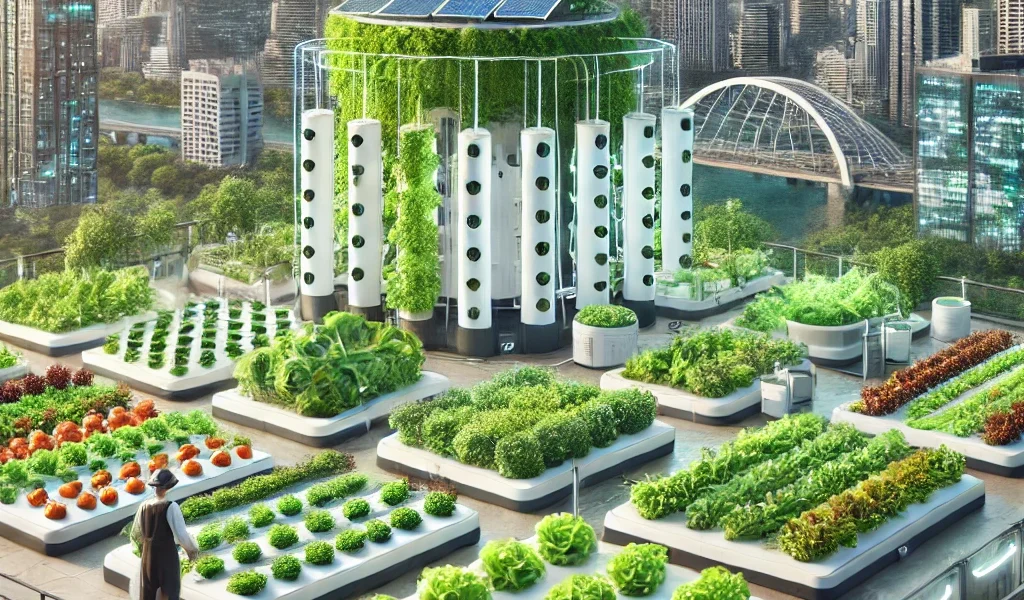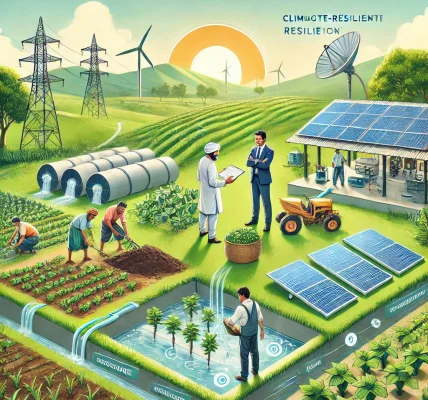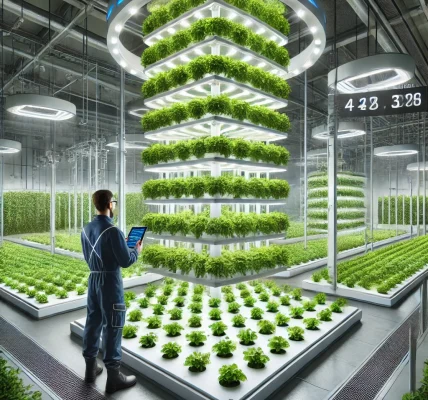Introduction
As urbanization expands, cities face challenges in food security and sustainable agriculture. Urban farming, particularly rooftop and indoor agriculture, has emerged as a solution to these issues. To encourage this eco-friendly practice, the Indian government has introduced multiple schemes and incentives that support urban farmers, agripreneurs, and sustainability advocates.
This article explores the benefits of urban farming, government policies, subsidies, and how you can apply for financial support to establish your own urban farm.
Why Urban Farming?
Urban farming is gaining popularity due to the following benefits:
✅ Efficient Land Use – Utilizes rooftops, balconies, and vacant spaces for growing food. ✅ Reduces Carbon Footprint – Less transportation reduces greenhouse gas emissions. ✅ Fresh & Organic Produce – Enables access to chemical-free, fresh vegetables and herbs. ✅ Water Conservation – Hydroponics and aquaponics use up to 90% less water than traditional farming. ✅ Employment & Income Generation – Creates entrepreneurial opportunities in urban areas. ✅ Climate Resilience – Helps cities adapt to climate change by improving green cover.
Government Schemes Promoting Urban Farming in India
1. Sub-Mission on Agricultural Mechanization (SMAM)
- Objective: Provide financial assistance for modern farming equipment.
- Key Benefits:
- Subsidy of 40-50% on hydroponic and vertical farming equipment.
- Funding for controlled-environment agriculture (CEA) systems.
- Support for drip irrigation, aeroponics, and automation.
- How to Apply?
- Applications can be submitted through State Agricultural Departments.
2. Rashtriya Krishi Vikas Yojana (RKVY)
- Objective: Support innovative agriculture-based startups and projects.
- Key Benefits:
- Grants for rooftop farming, aquaponics, and hydroponics initiatives.
- 50-75% subsidy for pilot projects in urban agriculture.
- Assistance in setting up community gardens and urban greenhouses.
- How to Apply?
- Applications are processed through the State Agriculture Department and NABARD.
3. Paramparagat Krishi Vikas Yojana (PKVY)
- Objective: Promote organic farming in urban areas.
- Key Benefits:
- Subsidy up to ₹10,000 per rooftop farm.
- Support for biofertilizers, composting units, and organic certification.
- Encourages zero-budget natural farming (ZBNF).
- How to Apply?
- Apply through the Agricultural and Processed Food Products Export Development Authority (APEDA) website.
4. National Horticulture Mission (NHM)
- Objective: Support horticulture development in urban areas.
- Key Benefits:
- Financial aid for rooftop vegetable gardens and micro-irrigation systems.
- Subsidies on shade nets, polyhouses, and soil-less farming techniques.
- Support for post-harvest management and urban nurseries.
- How to Apply?
- Applications can be submitted through State Horticulture Departments.
5. Pradhan Mantri Formalization of Micro Food Processing Enterprises (PMFME)
- Objective: Strengthen urban agribusiness and food processing units.
- Key Benefits:
- 35% subsidy (up to ₹10 lakh) for micro food processing businesses.
- Funding for urban organic farms producing value-added products.
- Assistance for processing and marketing urban-farmed vegetables.
- How to Apply?
- Apply via PMFME online portal or through local MSME offices.
6. Smart Cities Mission
- Objective: Integrate urban agriculture within city planning.
- Key Benefits:
- Development of urban community gardens and hydroponic farms.
- Funding for green building projects with integrated rooftop farming.
- Support for smart irrigation systems and IoT-based farming.
- How to Apply?
- Applications are managed by municipal corporations and urban planning bodies.
How to Apply for Urban Farming Grants?
Step 1: Identify the Right Scheme
- Select a scheme based on your farming model (rooftop, hydroponics, vertical farming, etc.).
- Read the eligibility criteria and ensure compliance.
Step 2: Gather Required Documents
- Aadhaar Card / Business Registration Certificate
- Land Ownership / Lease Agreement
- Detailed Urban Farming Project Proposal
- Bank Account Details
Step 3: Submit Application
- Apply through the relevant government portals (State Agriculture Dept., NABARD, APEDA, etc.).
- Submit applications at authorized banks for subsidized loans.
Step 4: Approval and Fund Disbursement
- After approval, funds will be transferred directly to your account.
- Implement the urban farming project following grant guidelines.
Tips to Maximize Benefits from Government Schemes
✅ Choose Sustainable Farming Methods: Hydroponics, aquaponics, and organic farming qualify for more grants. ✅ Leverage Technology: IoT-based monitoring and AI-powered farming tools increase funding eligibility. ✅ Collaborate with Smart City Projects: Many urban development plans include farming incentives. ✅ Get Expert Consultation: Agricultural universities and Krishi Vigyan Kendras (KVKs) provide free assistance. ✅ Stay Updated on Policy Changes: Regularly check government portals for new funding opportunities.
Future of Urban Farming in India
Urban farming is set to transform India’s agriculture landscape. With increasing support from the government and private investors, urban agriculture will:
- Reduce dependency on rural farms for fresh produce.
- Enhance local food security and reduce food miles.
- Promote green, sustainable, and resilient cities.
If you’re an aspiring urban farmer or agripreneur, now is the best time to take advantage of government support and be part of India’s green revolution in cities. 🌱🏙️🌿




